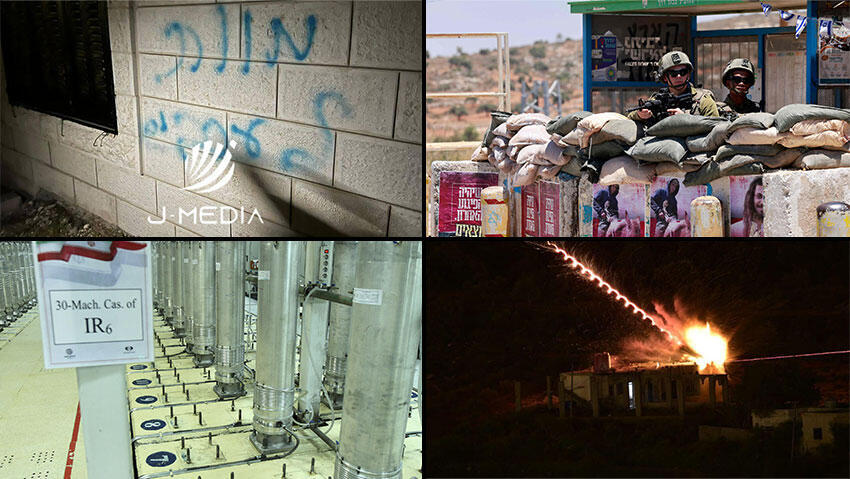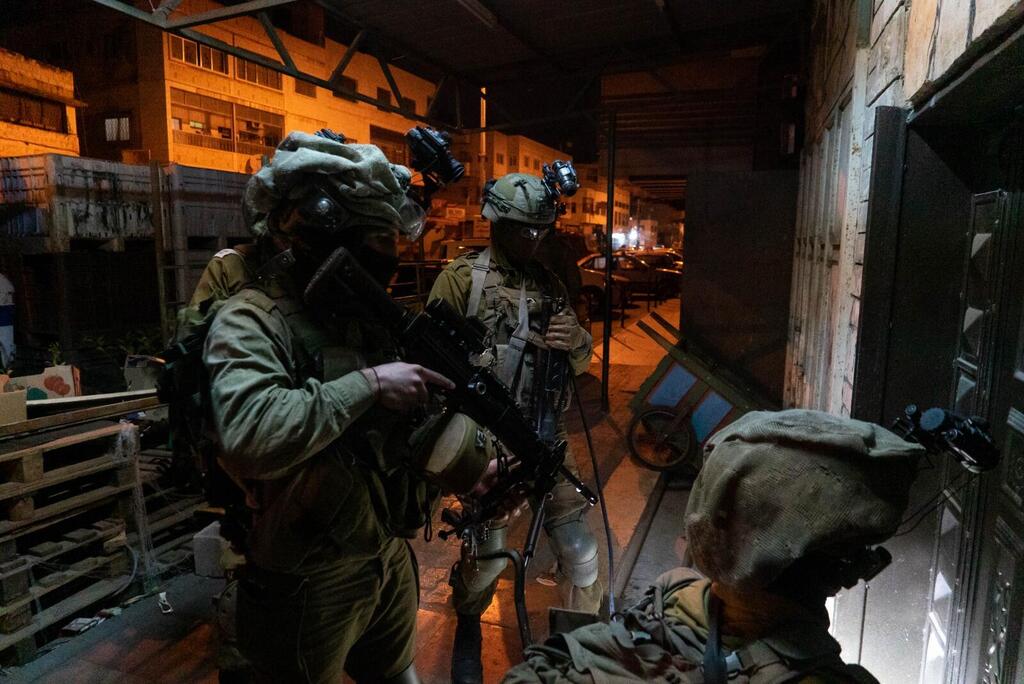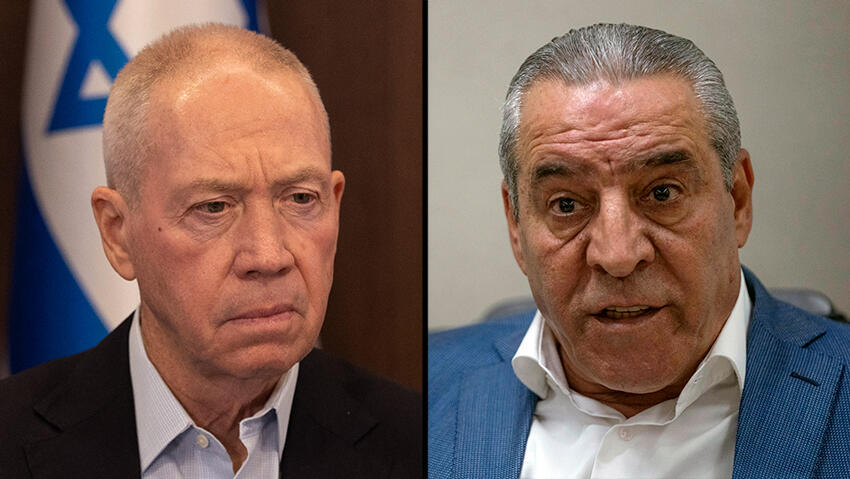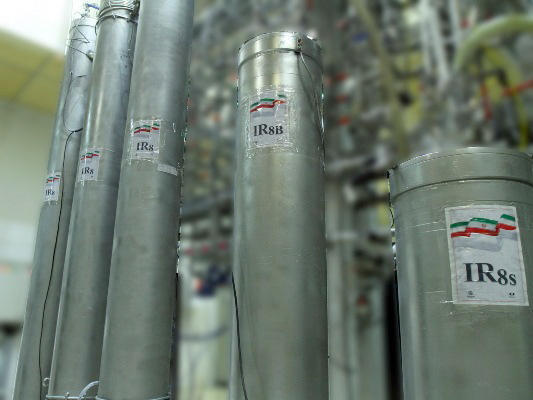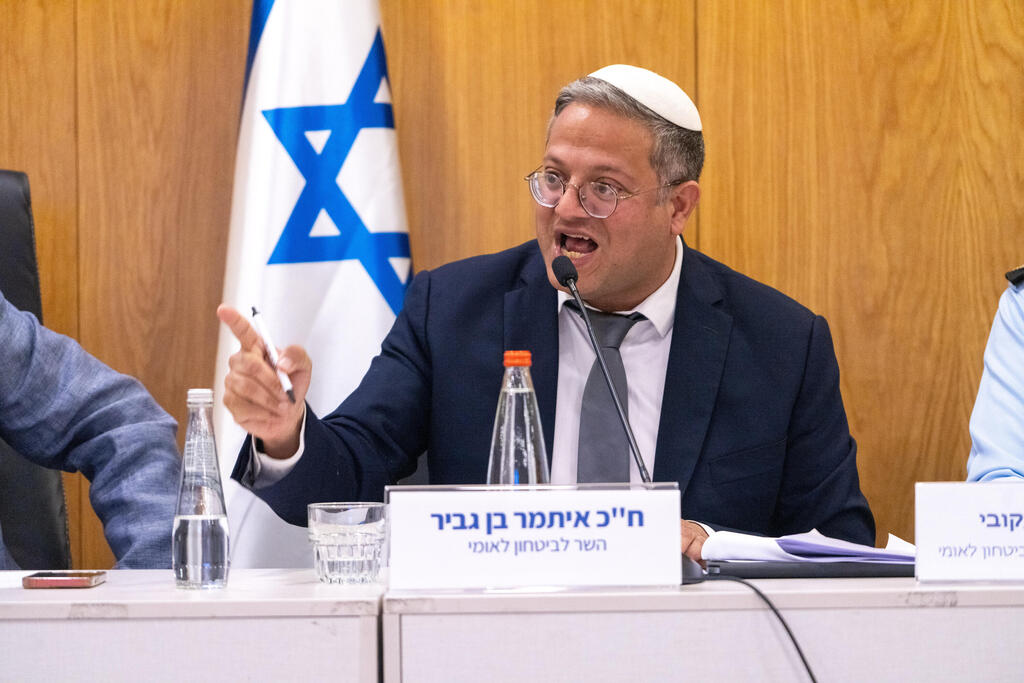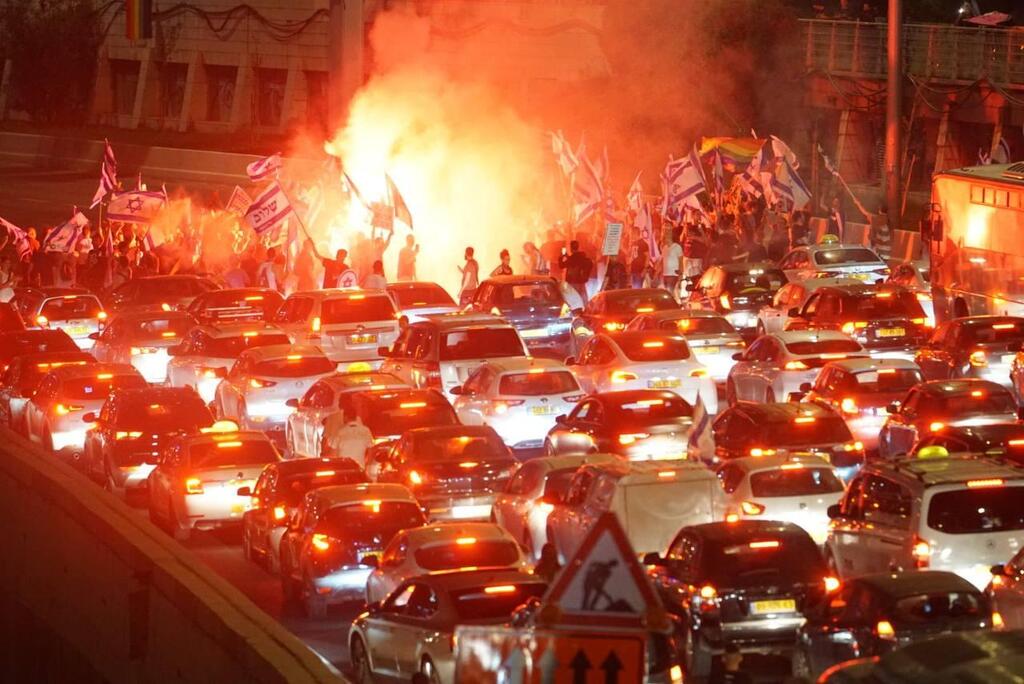IDF counterterrorism operation in Nablus
(Video: IDF Spokesperson's Unit)
Since the War of Independence, the defense establishment has not faced a period as complex, dangerous and challenging as the current one. The IDF, Shin Bet and the police are currently compelled to fight not only against external enemies but also simultaneously against internal threats to their institutional nature and functionality. This necessitates top defense officials, starting with Defense Minister Yoav Gallant, to demonstrate creativity and a moral backbone.
Read more:
The current situation has prompted the defense minister, the IDF chief, the heads of the Shin Bet and the Mossad and the police commissioner to unite and mobilize their forces not only toward combating Palestinian terrorism and Iranian subversion but also toward senior government ministers and their supporters who hold political and ideological agendas that clash with the objectives pursued by the IDF, Shin Bet and the police on the ground.
Some members of the government and their far-right supporters have an interest and an incentive to sow chaos in the West Bank and engage in destructive and lethal behaviors that would compel Palestinians to leave the territory, while defense officials strive to deescalate, separate terrorists from non-involved individuals and strengthen the Palestinian Authority and its institutions.
In fact, the IDF is currently dealing with several fronts simultaneously - the effort to halt Iran's nuclear advancement, the war between wars, fighting in the West Bank, the political situation and the calls to refuse reserves service. Additionally, there is the highly challenging and complex task of confronting the extremist Jewish nationalist crime.
Regional intifada
Some of the criticism against the defense establishment seems justified on the surface. For over a year, a "regional intifada" has been taking place in the northern West Bank, which is not only ongoing but also escalating.
Recently, the number and severity of attacks against Jews have increased, undermining the success of what was once considered Operation Breakwater by the IDF, Shin Bet and the Mossad. Motivated Palestinian youth are engaging in widespread violence, armed with weapons and benefiting from the lack of cooperation from the Palestinian Authority and its security apparatus.
Social media networks enable local terrorist organizations, supported by Iran through Hamas and Islamic Jihad, to organize and amplify their activities with weapons and funding.
As a result, the number of stone-throwing incidents and Molotov cocktail attacks in the West Bank as a whole has more than doubled and tripled compared to the first half of last year.
The number of terror attacks resulting in Jewish casualties has more than doubled this year compared to last year. Furthermore, there has been an increasing number of IEDs thrown at security forces during counterterrorism raids in the northern West Bank.
While most of these devices are small and rudimentary, their quality is improving, and their potency is increasing. This was evident in a recent incident in Jenin, where the IDF had to extract nearly 10 vehicles from Palestinian territory following a complex arrest operation.
Furthermore, there have been recent attempts to launch rudimentary rockets from within the West Bank. Although these incidents are infrequent and the rockets currently do not pose a threat to anyone or anything, they serve as a reminder that Palestinians, with external support, have the potential of developing more sophisticated explosive devices and rockets with improved warheads, expanding their range and capabilities.
Just like after Operation Protective Shield
Following these developments, in recent weeks the IDF and Shin Bet have recognized that the operational methods employed as part of Operation Breakwater have partially exhausted themselves. In fact, over the past week, we have witnessed a certain change in the operational patterns of the IDF, Shin Bet and special units of the Border Police, aiming to bring about a shift.
The current challenges that the IDF is addressing primarily involve shootings on the roads, whether it's from Palestinian vehicles toward Jewish vehicles or armed attacks on Israeli vehicles traveling along the main routes (60, 90, 453 and 5). All of this occurs alongside stone-throwing and Molotov cocktails, which have already become routine on West Bank roads.
The second issue that the security forces are dealing with involves improvised explosive devices (IEDs) and laboratories for manufacturing explosive materials, alongside attempts to smuggle conventional explosives initiated by Iranian initiatives to local organizations in the territory. The third issue is related to rockets, which are primarily addressed on the intelligence level.
IDF armored vehicle goes over Palestinian IED in Nablus
In order to effectively suppress all these threats, the IDF is operating on multiple vectors in the northern West Bank. Firstly, there are large-scale arrest raids carried out by forces on a brigade level. Such an operation took place between Monday and Tuesday in Nablus, resulting in the arrest of 13 wanted individuals. They were taken for questioning by the Shin Bet, and it can be assumed that a significant number of arrests and investigations will yield valuable intelligence.
Large-scale arrest and suppression operations are increasing alongside small, pinpointed operations, which will continue in places where the Shin Bet and the Military Intelligence Directorate have focused intelligence.
However, there is a tendency to prioritize large-scale arrest and suppression operations over smaller operations that result in friction and a high number of Palestinian casualties, with limited results. The IDF has deployed more than 25 trained infantry battalions to the West Bank, capable of conducting effective arrest and suppression operations on any scale deemed necessary by IDF commanders.
The agents of the Shin Bet's operations unit are usually the ones who pave the way for the forces and "kick down the door." Following them, IDF special units and Border Police enter the pre-identified targets marked by the intelligence agencies, while regular infantry units and reserve battalions serve as a surrounding force for the operation and provide reinforcement when needed.
The military insists that the surge in operations is driven by a commitment to optimize efficiency and reduce the potential risks faced by IDF soldiers when entering Palestinian towns or navigating major routes, rather than political pressures.
7 View gallery
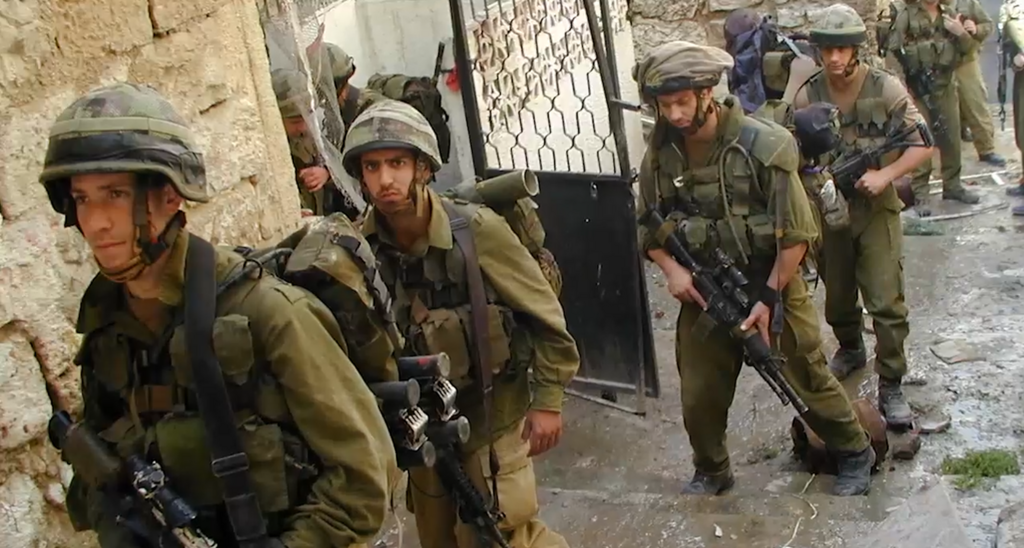

Golani Brigade soldiers march through Nablus during Operation Protective Edge
(Photo: Courtesy)
However, it is not currently, nor in the foreseeable future, a matter of launching a large-scale Operation Defensive Shield 2-like move. Instead, there is a possibility of targeted operations on a large scale. This aggressive activity aims not only to preempt Palestinian shooting attacks before they reach the routes but also to locate and destroy laboratories for the production of explosive materials and rocket fuel.
In addition to ground-based counterterrorism raids, the IDF has been operating for about two weeks on the main traffic routes to prevent attacks on Israeli vehicles, installations and residents.
The most significant development is the deployment of UAVs (unmanned aerial vehicles) to neutralize terrorist groups in the northern West Bank. This approach will persist and could be further enhanced if the IDF utilizes combat helicopters, a practice that has been absent in the West Bank for a long time.
Nonetheless, these operations will be carried out with care and only under conditions that minimize unintended harm while maximizing the effective utilization of these resources.
Additionally, the IDF and the Border Police have set up surprise checkpoints, positioned ambushes alongside roads and conducted patrols. Furthermore, thanks to intelligence, the IDF does not hesitate to impose lockdowns on Palestinian villages that are indicated as hotspots. The closure prevents uncontrolled access from these villages to the main routes.
The IDF is seemingly dedicating significant resources in the northern West Bank, reminiscent of the Second Intifada following Operation Defensive Shield.
The aftermath of a drone strike on a terror cell near Jenin
The subsequent Operation Determined Path capitalized on the IDF’s presence in Palestinian cities and enabled the Shin Bet to gather intelligence and significantly suppress terrorist activities based on past successes. This parallel can be drawn to the ongoing situation in the northern West Bank, with the possibility of expanding these measures. Encouragingly, there have been tangible results thus far: no terrorist attacks have occurred since the Alon Moreh incident and the targeted assassination of the terrorist cell by air.
Nationalist crime and reduced preparedness
However, alongside the fight against Palestinian terrorism, the IDF has recently been forced to deal with a surge in nationalist violence and vigilantism among Jews on a scale not seen in over a decade.
"What has changed is the number of people participating in these acts of nationalist violence," says a senior security official. "In certain incidents, we have seen hundreds of individuals taking the law into their own hands, setting fires, vandalizing and attacking Palestinian villages."
The high-ranking official notes that the IDF attempted to stop the perpetrators, but the forces at its disposal were insufficient because most of the troops and commanders were engaged in suppressing Palestinian terrorism, leaving them spread too thin.
In a meeting with the brigade commanders in the West Bank, they informed IDF Chief of Staff Lt. Gen. Herzi Halevi that in order to curb Jewish rioters, they require a significant number of personnel who can physically block the troublemakers using crowd control measures. Otherwise, they would have to resort to live fire. Curbing nationalist-Jewish criminal activity also necessitates the presence of senior commanders in the field to prevent an escalation that could spiral out of control.
Settlers attack the Palestinian town of Turmus Aya following the terrorist shooting near Eli
These circumstances lead to two potential outcomes: either scaling back the IDF's counterterrorism operations or facing the possibility that Jewish rioters, who have become adept at mobilizing in large numbers armed with flammable materials, will effectively outmaneuver the comparatively limited security forces opposing them.
The IDF has increased its troop deployment and training in the West Bank, leading to a notable impact on the military's readiness and preparedness. Consequently, the defense minister, IDF chief, head of the Shin Bet and the police commissioner are urging government ministers to intervene and persuade their supporters in the West Bank to end nationalist violence and criminal activities.
These actions not only affect the operational readiness and training of the IDF but also undermine the international legitimacy the IDF has in countering terrorism in the West Bank. Moreover, the morale of IDF commanders is severely affected by the physical and verbal confrontations with extremists, as well as the direct or covert backing they receive from government officials.
The IDF's efforts to calm the northern West Bank and prevent a general uprising in the West Bank have also led the defense minister to call Hussein al-Sheikh, the de facto deputy of Palestinian Authority Chairman Mahmoud Abbas.
The IDF chief and Coordinator of Government Activities in the Territories Ghassan Alian support such a dialogue as part of the efforts to enable the Palestinian Authority to deploy its security forces in the northern West Bank over which it has lost control.
The main argument the defense minister presented to al-Sheikh is that the Palestinian Authority's security forces can prevent Palestinian casualties in clashes with IDF forces through proactive measures and that Israel is specifically interested in improving the economic situation in the territories.
However, according to Israeli sources, it seems that Israel's pleas are falling on deaf ears, as Abbas is focused on a political struggle against Israel and is unwilling to consider improving security coordination with Israel or his forces acting in the Nablus and Jenin areas.
Iran is trying to restrict freedom of action
Simultaneously with operations in the West Bank, the IDF continues to confront Iran’s proxies. These groups attempt to infiltrate the territories, providing funds and combat capabilities to terrorist organizations. Iran seeks to advance its nuclear program, establish militias in Syria and supply high-quality weapons to both Syria and Hezbollah.
Israel's efforts primarily focus on intelligence, aiming to intercept money transfers and combat supplies to the territories. It closely monitors Iranian uranium enrichment activities and the evolving developments between the United States and Iran regarding the suspension of uranium enrichment in exchange for the lifting of U.S. sanctions.
Israeli officials acknowledge that curtailing enrichment beyond 60% alone is insufficient, as Iran, through these developments, maintains a position that enables it to break through toward nuclear weapons production within a few weeks, effectively becoming a "nuclear threshold state."
Israeli officials understand their inability to halt the developments between the United States and Iran. However, they are simultaneously striving to ensure that the United States poses a credible military threat to Iran if it enriches uranium beyond 90%.
Former President Donald Trump played a role in assisting Israel in creating a credible threat against Iran when he disclosed to his aides the covert plans presented to him by General Mark Milley, chairman of the Joint Chiefs of Staff, for an attack on Iran. The release of the recordings on CNN, in which Trump discusses the attack plans presented to him by Milley, both serve Israeli deterrence and land the former president in hot soup.
As part of the ongoing war between wars, the main effort seems to be preventing Iran from transferring advanced surface-to-air missile batteries to its allies in Syria and Lebanon. Iran is currently attempting to limit the freedom of action enjoyed by the Israeli Air Force in the skies of Syria and Lebanon. Through various means at its disposal, Iran is supplying different types of surface-to-air missile batteries to militias in Syria and Hezbollah in Lebanon. The IDF has successfully countered this effort.
What complicates Israel's security situation and poses a moral and psychological burden is the fact that its senior officials, as well as soldiers in the field, are forced to contend with threats from within, stemming from the Israeli public.
The defense minister, the IDF chief, the head of the Shin Bet and the police commissioner implement operational activities based on practical considerations and urgent assessments, which discern the necessary changes in the deployment of forces in the field.
In contrast, the government and the Cabinet currently operate to a large extent based on political and ideological motives and considerations that are not operational in nature. Even worse, they serve a hidden agenda of Otzma Yehudit ministers and some Likud officials who aspire to ignite the West Bank and drive out their Palestinian residents.
And that's not all - the protest against the judicial overhaul has led many volunteers in the reserves to refuse to report for duty, which also presents a complex dilemma for the heads of the defense establishment and elicits demanding statements of "asserting control" from far-right ministers.
New tactic against refusniks
After a period of confusion and searching for direction, it appears that the leaders of the security establishment have adopted a mode of operation that enables them to appease far-right ministers while keeping the governmental and military institutions intact. When confronted with protests and instances of so-called insubordination, the IDF is working to mitigate tensions with reservists who, as civilians, act based on political or ideological motivations.
The IDF chief and the General Staff generals, for example, with the approval of the defense minister, have decided not to take drastic steps against reservists who declare that they will refuse to volunteer for reserve duty. The IDF will take decisive steps only if isolated reservists refuse to attend training or engage in operational activities specified in explicit orders from the IDF and their immediate commanders.
It could be a pilot refusing to participate in a mission over Syria or a reservist called to serve in the territories. If these individuals claim that they are refusing due to protest against government actions, the IDF will handle them according to the regulations of military law and based on the primary consideration of maintaining the military's readiness and preparedness.
Anything that does not harm the military's readiness and preparedness is of no concern to the IDF, and those who wish to express their opinions are free to do so. The IDF and other security bodies will not pay attention, except in one case - if reservists attempt to incite regular soldiers to refuse orders or engage in other forms of insubordination.
From his side, the prime minister tries to assist the heads of the security establishment by strongly condemning violence, nationalistic crime and the occasional statements by Otzma Yehudit ministers, which are hard to believe are coming from government officials.




